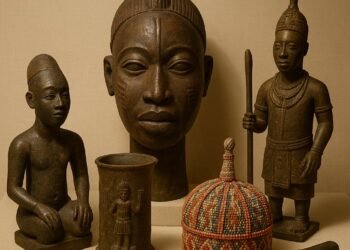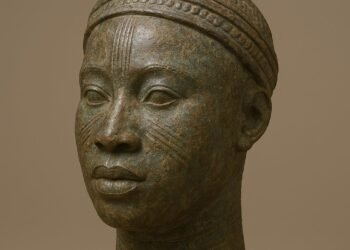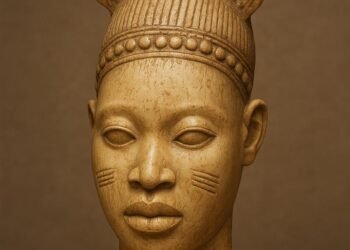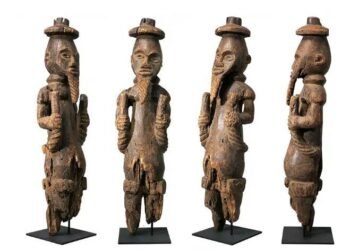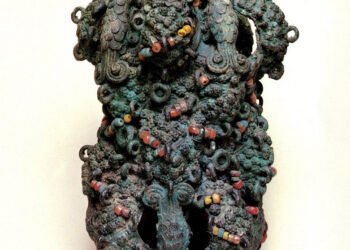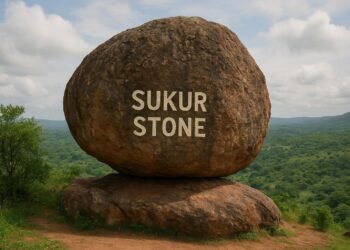Discover the Beauty of Bwari Rock in Abuja, Nigeria
Ruling over Nigeria’s Federal Capital Territory is the granite pillar of Bwari Rock, a profound commentary on time.
Far more than a geologic feature, it is a greatly honoured site for the Gbagyi and a powerful symbol of national identity.
This rock carries a living history, and it naturally bridges the old traditional practices with the political currency of today. Its extended lifespan is a testament to a culture of resistance, community, and the unbroken link between a nation’s heritage and its thriving present.
Read Also: Arochukwu Long Juju Shrine: Unveiling Ancient Traditions
To know Bwari Rock is to begin to understand the very core of Nigeria.
Table of Contents
Where is Bwari Rock?
The history of Bwari begins with the Gbagyi people, the earliest inhabitants of this area. They have been here for centuries before the modern maps were made.
Even the name “Bwari” originated from a common phenomenon of everyday life. There was a story of a Zaria hunter who migrated to settle here with his wife and children in the 1600s. He indicated a spot to his wife where she ground millet and told her, “Bwayape,” which meant “grind here” literally.
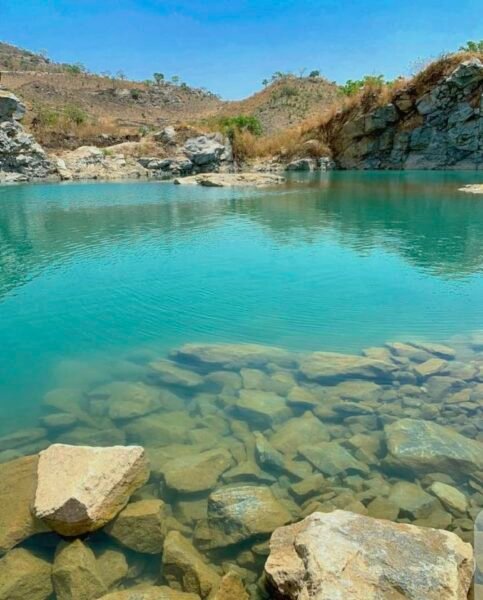
That familiar phrase was gradually softened into the name we have today. The large boulder did not just serve as a gathering place; it also offered shelter and protection, acting as a natural fortress for the people.
It was also very religiously significant, serving as a silent protector over their ways and existence. But this history is not all peaceful.
The region has its share of conflict, including a major conflict between the Koro and the Gbagyi leaders that at times led to disturbances. This is a complex history that reminds us that the rock has witnessed both harmony and conflict, a rich and multifaceted human story.
Bwari Rock – A Stone and Time Monument
Bwari Rock is an awe-inspiring specter, a humongous granite giant created out of the fiery belly of the earth hundreds of millions of years ago.
Its face bears the testimony of age, etched upon it with deep cracks and cliffs that emit a soft light under the sun’s rays. No hill, it’s a grand display of nature’s power, dominating the horizon and shaping the entire district’s topography.
Not far away, the Ushafa Crush Rocks offer a striking contrast. The serene blue waters, set against the unusual rock shapes, provide a peaceful escape for those seeking calm.
Together, these natural wonders are greater than they appear at first, beautiful scenes. They are a tangible connection to the distant past, a silent lesson in the colossal geologic processes which built this region.
Bwari Rock – Sacred Ground and Spiritual Beliefs
To the Gbagyi people, Bwari Rock was never simply stone and mineral. It lived and breathed within their spiritual world, a revered entity at the centre of their existence.
This deep connection to the natural world extended to other sacred sites, like the Kuchidna spring in nearby Ushafa. This water source holds a powerful mystery, never drying up even during the fiercest harmattan winds.
Its origins remain unknown, adding to its spiritual significance. Within its waters live fish considered sacred, protected from consumption as they are believed to be a living link to ancestors.
These places reveal a profound worldview where geography and spirit are inextricably linked. The land itself was a companion and a guide, with every rock and spring holding meaning and playing a vital role in daily cultural and spiritual practices.
This animistic belief system created a rich tapestry of tradition that defined their identity.
Bwari’s Contemporary Role
Modern-day Bwari has naturally evolved into a key administration and education hub in the Federal Capital Territory.
Bwari is renowned for its prestigious national institutions, which attract students and professionals from across the nation.
The presence of the Nigerian Law School and JAMB headquarters has established Bwari as a well-known centre for learning and administration.
This academic emphasis creates a lively atmosphere, blending intellectual activities into everyday life.
Local governance is overseen by an elected chairman and a ten-member council, reflecting a complex political framework that guides the region’s evolution.
This modern development exists in thoughtful harmony with the area’s deep cultural heritage. The same landscapes, which hold ancient spiritual significance, now also house classrooms and government offices.
Read Also: Sukur Stone: A Symbol of Ancient Craftmanship
Bwari offers a striking example of thoughtful growth through its blend of old and new. Here, instead of being overshadowed, the past is woven into the town’s changing identity. Throughout this shift, the rock stands as a constant symbol.
Bwari Rock – Artistic Heritage and Local Craftsmanship
The artistic heart of Bwari is very much alive in its pottery. It is more than a craft but a living tradition, handed down through generations of Gbagyi people.
Central to this practice is Stephen Myah and his Bwari Pottery Village, where the traditional art form continues to thrive.
Myah creates lovely work with a signature ‘Bwari Blue’ glaze, which is an effect he achieves by adding minerals from the surrounding environment, including quartz and feldspar.
His own introduction to pottery was by chance through a meeting in Zaria, and he now dedicates his time to teaching new apprentices so that these techniques are not lost.
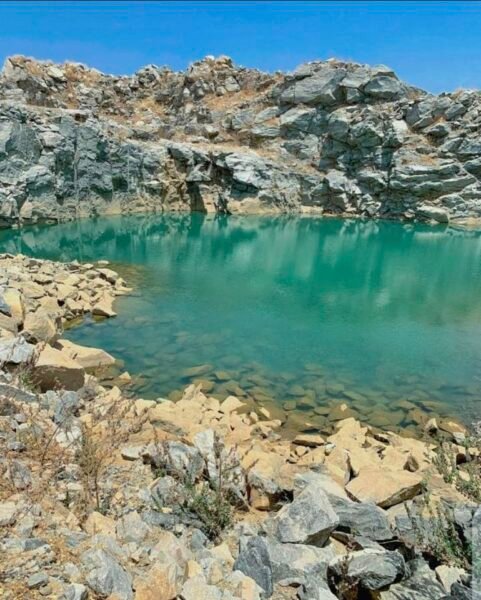
This work does more than restore the past; it actually shapes the cultural and economic present of the community.
Each hand-shaped pot has a story to tell, bridging the functional and the beautiful and showing that traditional crafts have a vigorous and relevant contribution to make to modern living.
Unsolved Mysteries and Local Legend
There are deep layers of local mythology adding to the mystique of the Bwari landscape. Kuchidna spring of Ushafa continues to be the most fascinating mystery of the location. The spring is never empty, not even in the hottest summers.
It brims with fish, which the inhabitants feel are miraculous. Locals who reside here don’t eat these fish, as they believe they are linked to their ancestors and serve as guardians in a spiritual sense.
The formations themselves are part of the history of protection and supernatural events, as most residents explain how these natural formations have guarded the neighbourhood during tough times.
No matter how much contemporary science can explain the phenomenon, these anecdotal experiences are the raw material of cultural identity.
They turn nature’s world into a world of magic, where every spring and every rock has a story to tell in which the past comes alive again in strange and wonderful ways.
Bwari Rock – Balancing Progress and Protection
The growth of Bwari raises the complex question: how to develop without losing its natural and cultural resources.
Intense pressure to build and urbanise naturally puts a lot of stress on a region’s history and feel. Actions such as mining, the erosion caused by construction, and increased pollution directly harm the geological formations and cultural sites that make a place unique.
To exacerbate environmental matters, social issues related to land and conflicting cultural desires often resurface, leading to heated disagreements within the community.
A reminder that development is never simple or wanted by all.
Achieving the proper balance will take careful leadership and genuine community dialogue. It is to proceed without sacrificing the natural beauty and rich heritage that characterise Bwari. It’s challenging to respect history while building for the future, ensuring that progress benefits both the Earth and its people.
Keeping the Past alive for what’s to come
Bwari Rock is not a monument, but a living legacy of nature, history, and spirit. Its conservation demands cautious action.
Sensitive environments must be conserved by promoting responsible tourism that enables individuals to experience a place without destroying it. Laws on construction and mining within a specified radius of the area must be implemented to ensure its safety.
Read Also: Aso Rock: The Heart of Nigeria’s Scenic Beauty
No greater is the continued documentation and remembrance of the cultural heritage it preserves.
This rock is a shared heritage, one that requires the care and attention of both government and the public. Keeping it is a pledge to the next generation; a promise that development will not erase the past.
With this symbol, we ensure that Bwari Rock will continue to be an inspiration, an identity, and a marvel for the next generation.

